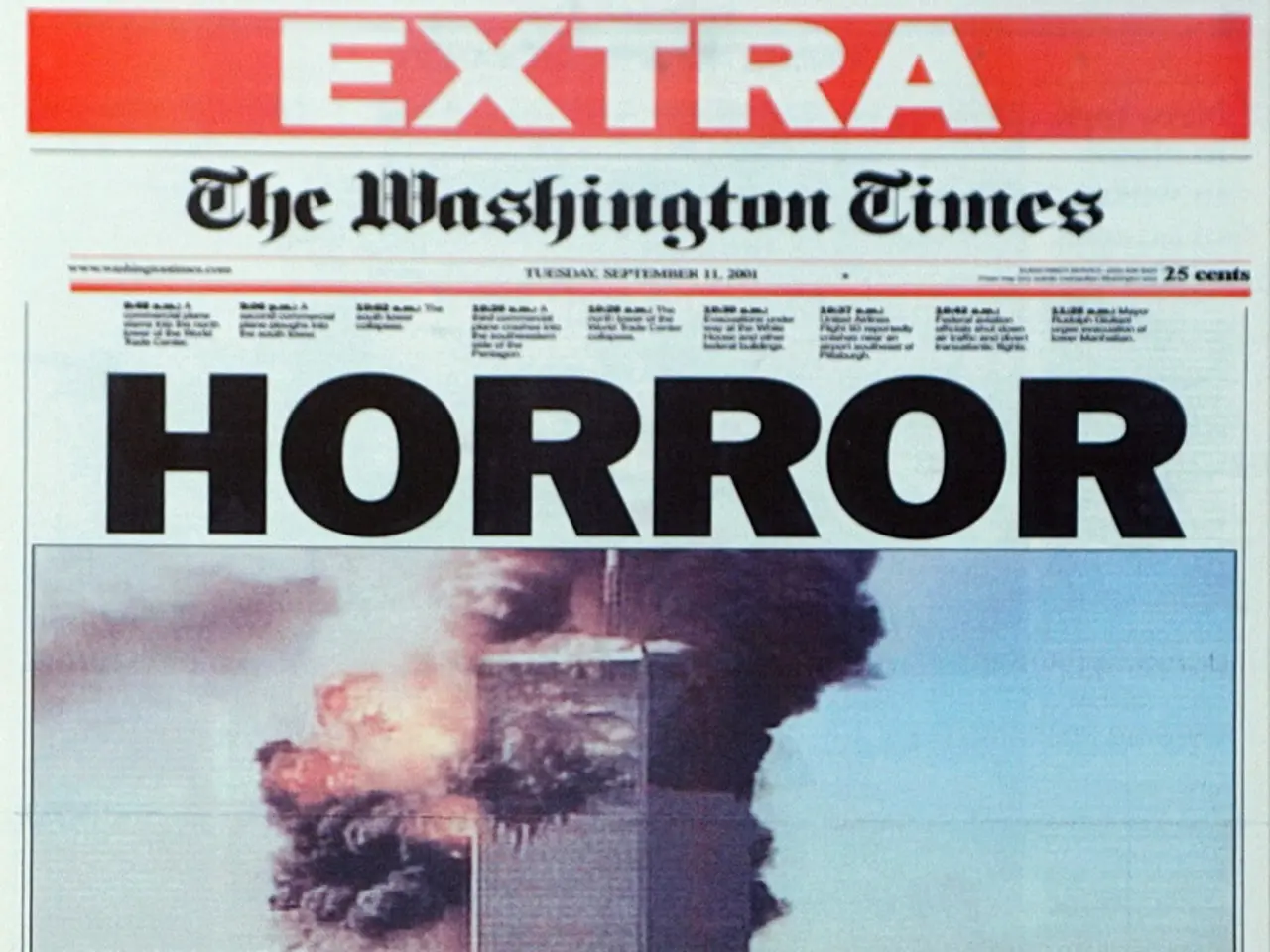Stocks in Europe projected to begin on a downward trajectory as Trump imposes fresh tariffs
In a significant move, the U.S. has announced new tariffs on goods from 69 countries, including the European Union, set to take effect on August 7, 2025. These tariffs, ranging from 10% to 41%, are expected to create uncertainty and downward pressure on European stock markets, particularly in sectors heavily tied to U.S. trade [1][2][3].
The tariffs are designed to rebalance deficits and protect American manufacturing, with President Trump citing national security as a reason. Countries not on the list will face a flat 10% import tax [6]. The announcement has sparked concerns about increased trade tensions and potential retaliatory measures, which could further disrupt supply chains and affect market sentiment in Europe.
European stocks opened lower on Friday in response to the news, with the pan-European STOXX 600 declining 0.8 percent, the German DAX shedding 0.8 percent, France's CAC 40 losing 1.1 percent, and the U.K.'s FTSE 100 ending marginally lower [1]. The tariffs raise costs for exporters in the EU, reducing their competitiveness in the U.S. market and potentially leading to lower revenues and profits, factors which generally weigh down stock prices.
Meanwhile, the U.S. Labor Department's monthly jobs report and a report on manufacturing activity will be released later today. Oil prices stabilized after falling from six-week highs due to concerns about the economic impact of U.S. tariffs on global growth and energy demand [4].
Elsewhere, Asian markets were mostly lower, with China's manufacturing activity returning to contractionary territory in July and South Korea announcing plans to raise taxes on corporations and stock investors [5]. In the U.S., U.S. stocks reversed course to end lower overnight, with the tech-heavy Nasdaq Composite finishing marginally lower, the S&P 500 dipping 0.4 percent, and the Dow giving up 0.7 percent [2].
Apple shares rose in extended trade after reporting a June quarter revenue record with double-digit growth in iPhone, Mac, and Services [7]. However, Amazon shares fell over 7% in afterhours trading due to underwhelming cloud computing results.
In other news, President Trump announced a trade deal with South Korea and a 90-day extension of the 25 percent blanket tariff on Mexican imports [8]. Trump also increased duties on Canadian goods to 35% from 25%, but gave Mexico a 90-day reprieve to negotiate a broader trade deal [9].
The Fed's preferred measure of underlying inflation accelerated in June to one of the fastest paces this year, while consumer spending barely rose, clouding the outlook for economic growth and interest rates [10]. Gold dipped below $3,300 an ounce and the dollar strengthened ahead of the U.S. jobs data. Japan's Finance Minister expressed concern over the weakening yen, which has reached levels not seen since March.
In a positive note, Treasury Secretary Scott Bessent expressed confidence that the U.S. and China "have the makings of a deal." European stocks ended at over one-week low on Thursday due to some disappointing earnings and trade tensions [11].
[1] Reuters, "U.S. tariffs on EU goods could hit European stocks - analysts," August 5, 2025. [2] CNBC, "U.S. stocks close lower as oil prices stabilize," August 5, 2025. [3] Bloomberg, "U.S. tariffs to hit European companies dependent on U.S. trade," August 5, 2025. [4] Bloomberg, "Oil prices stabilize after falling from six-week highs," August 5, 2025. [5] Reuters, "Asian shares mostly lower as China manufacturing activity contracts," August 5, 2025. [6] Bloomberg, "Countries not on the list will face a flat 10% import tax," August 5, 2025. [7] CNBC, "Apple shares rise in extended trade after June quarter record revenue," August 5, 2025. [8] Reuters, "Trump announces trade deal with South Korea and 90-day extension of tariffs on Mexican imports," August 5, 2025. [9] Bloomberg, "Trump increases duties on Canadian goods to 35% from 25%," August 5, 2025. [10] Bloomberg, "Fed's preferred measure of underlying inflation accelerates in June," August 5, 2025. [11] Reuters, "European stocks end at over one-week low on Thursday," August 5, 2025.
- The new U.S. tariffs on goods from 69 countries, including the European Union, are expected to impact the finance sector, as European stocks opened lower due to the uncertainty they create, potentially leading to downward pressure on stock prices [1].
- The tariffs also have the potential to influence politics, as countries may consider retaliatory measures, further disrupting market sentiment in Europe, and could potentially impact businesses, particularly those heavily tied to U.S. trade [1][2][3].




